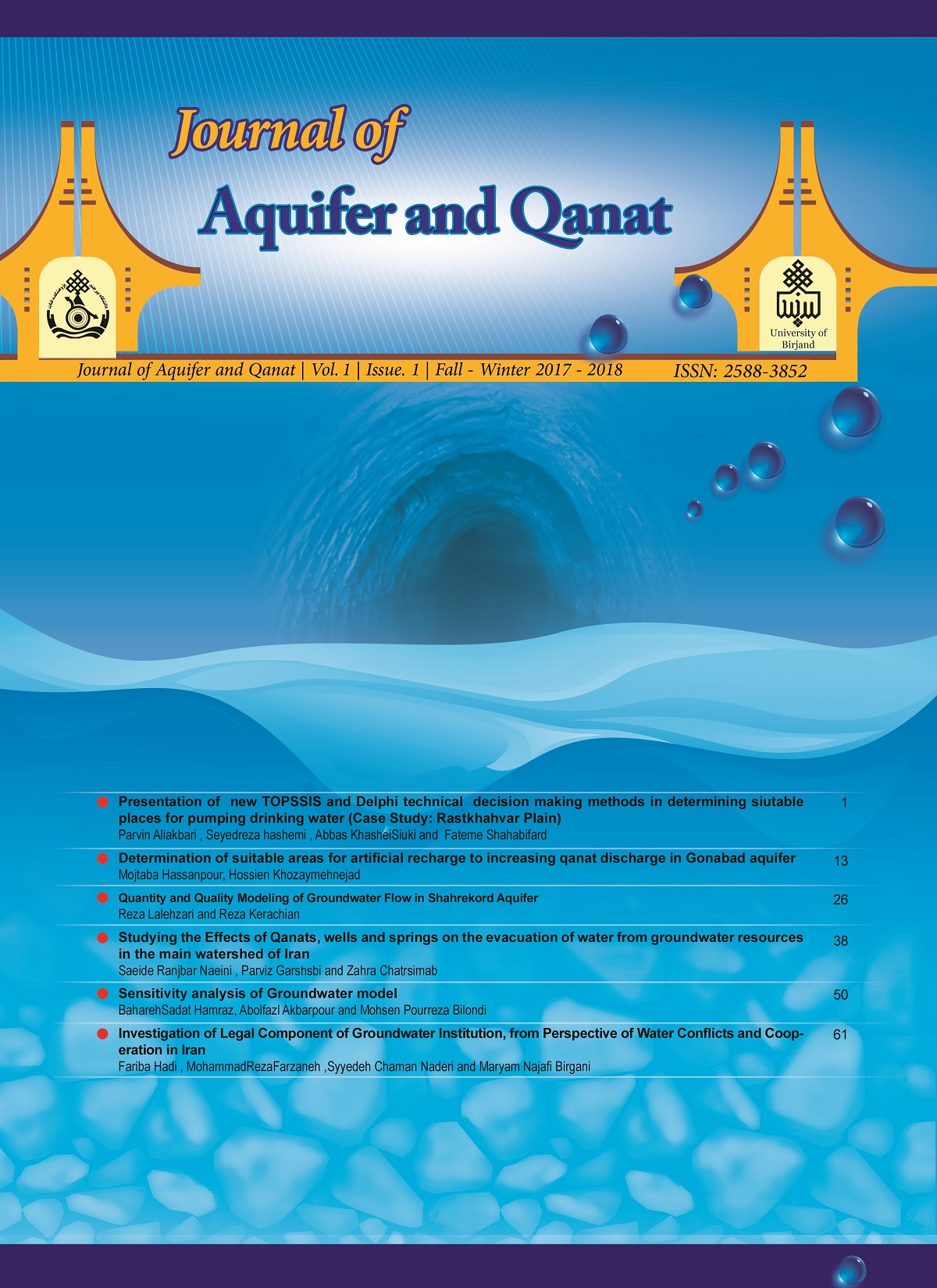Authors
1 Master Graduated of Irrigation and Drainage
2 Faculty memberofWaterEngineeringDepartment,GorganUniversityofAgricultural Sciences and NaturalResources, Gorgan
3 PhD Student of Water Resources, Islamic Azad University, Sciences and Research Branch, Tehran
4 Master Graduated of Irrigation and Drainage, Arak University, Arak
Abstract
The unsustainable exploitation of groundwater resources has reduced the level of stagnation and has caused the crisis of Iran's plains. Given the strategic role of these vital resources, conservation of groundwater resources is one of the most important issues of today's human societies. The study seeks to answer the question by investigating the" legal dimension "of the country's groundwater authority how much the legal dimension of the country's groundwater body has strengthened the framework for cooperation or has led to an intensification of the water conflict? The theoretical framework governing this research is "institutionalism." Based on the "qualitative" research method and using the "content analysis" tool, the text of the laws related to groundwater resources of the country was analyzed. This content analysis was based on the dimensions related to participation and disputes in the institutional matrix. Therefore, the data used in this research are related to the text of the laws established since the Mashroteh Revolution until now (1906-2016) in the groundwater's basin and similarly written documents. The results showed that without the presence of people, the possibility of proper planning and the possibility of operating the programs would not be possible in any way, and the role and position of people in the coordinate axes of the water crisis should be seen, and even the design of this situation also is a need for the participation of civil society institutions.
Keywords

